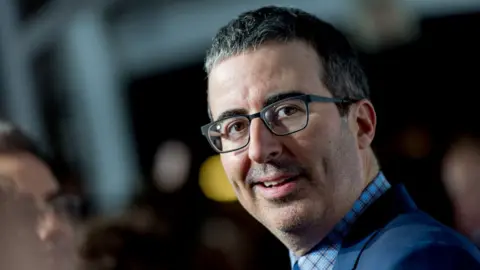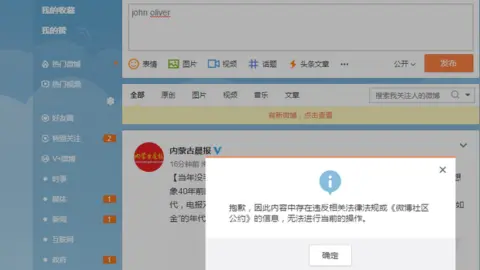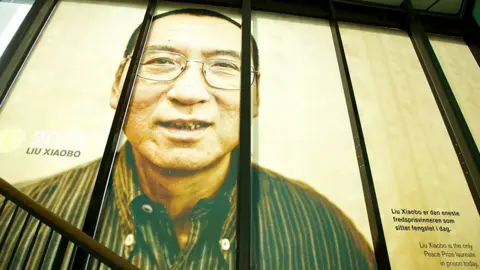Why you can't talk about John Oliver in China
 Getty Images
Getty ImagesIf you're looking to post something about John Oliver on Chinese social media this week, chances are you can't.
The British television host been censored on China's biggest social media site, just days after he criticised Chinese President Xi Jinping on his popular US show Last Week Tonight.
In the show's latest episode, Mr Oliver highlights the political, human rights and economic issues China is currently facing, and delivers some striking criticisms of the Chinese government.
Attempts by the BBC to post a status on Weibo - China's biggest social media platform - with the term "John Oliver" were blocked.
 Screenshot/Weibo
Screenshot/WeiboInstead an error message pops up, informing you that the post violates "relevant laws and regulations".
If you try searching for "John Oliver", it does yield some results, though you won't find any new posts - the most recent one is from the 12 June, a week before the "Last Week Tonight" episode aired.
A search for the show's name in Mandarin also brings up no results.
What exactly did John Oliver say about China?
In the 20-minute episode, the host touches on some topics that are known to be controversial in China.
He mentions China's removal of presidential term limits, which has essentially allowed President Xi to remain in power for life, adding that Mr Xi has "gone out of his way to form a cult of personality".
The removal of presidential terms was highly criticised and online censors had then rushed to block discussion around the topic.
Mr Oliver also brings up China's treatment of the Uighurs, a Muslim minority who live primarily in the region of Xinjiang and say they have long faced discrimination.
The Chinese government blames bloody clashes on Islamist militants and separatists. In recent years China has introduced new restrictions on the Uighur people.
The TV host also mentions Liu Xiaobo, one of China's most prominent human rights advocates and a Nobel peace prize laureate.
Mr Liu, who died in 2017 at the age of 61, had been serving an 11-year prison term for subversion and was branded a criminal by authorities.
 Getty Images
Getty ImagesSocial media posts about Mr Liu have similarly been censored on Weibo, with Mr Oliver saying himself that: "Chinese media won't allow mentions of [his] name."
His wife, Liu Xia, is still held under house arrest by Chinese authorities, and is said to be suffering from depression after spending years under heavy surveillance.
"Xi's crackdown on human rights is apparently the harshest crackdown since Tiananmen square," said Mr Oliver in his video.
"[He] has clamped down noticeably on any form of dissident whatsoever."
It is not uncommon for whole phrases or terms to be censored on Chinese social media.
As Mr Oliver points out in his video, the Chinese name for Winnie the Pooh and pictures of the cuddly character were blocked on Weibo after bloggers continually compared him to China's president.
China employs millions of people to monitor and censor internet activity and posts deemed to be politically incorrect are routinely deleted.
Last Week Tonight is not officially available on Chinese television and YouTube remains blocked in China but clips of the show are available on Chinese video hosting platforms.
